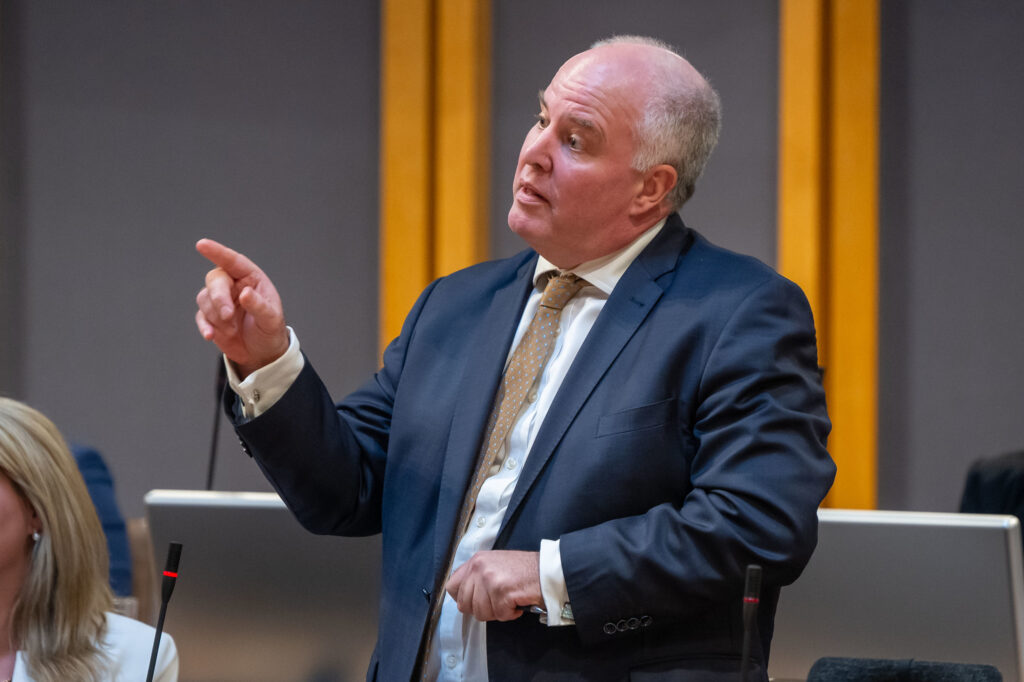Abolishing the Senedd is a risible policy, but the response to the proposal is motivated by issues beyond the technicalities of devolution, writes Ioan Phillips.
The Brexit Party’s announcement that it would be campaigning to abolish the Senedd in next year’s elections caused consternation amongst left-liberal politicians this week.
The former First Minister, Carwyn Jones, dismissed the party’s Welsh iteration as a mere front for “English nats”. Meanwhile the leader of Plaid Cymru, Adam Price, opined that the stance effectively “abolished Wales”.
To understand the anger of Messrs Jones and Price, one must consider what the Brexit Party represents to politicians like them. Everything the party stands for – the ending of devolution, Brexit, and scepticism towards identity politics – is a rebuff to their assumptions about Welsh political culture.
This left-liberal interpretation says Wales’ political preferences are more progressive than those of England. Successive Senedd elections seemingly bear out that thesis. Welsh Labour has been in power for 21 years. It has spent half of that time governing with either the Welsh Liberal Democrats (2000–03 and 2016–present) and Plaid Cymru (2007–11).
The past half-decade challenges that cosy narrative. In May 2016, Wales returned seven representatives from the now nearly–defunct UKIP. A month later, the UK voted to leave the EU – with Wales voting for Brexit by a 52-48 margin. In May 2019, the Brexit Party – which had absorbed many former Ukippers – swept to victory in the EU Parliament elections in Wales.
Rather than look at these events as a backlash against supposedly detached status quos in both Cardiff Bay and Westminster, some politicians – particularly those of a left-liberal hue – still fall into the trap of characterising the populist high-noon of recent years as (unthinking) citizens being led astray at the ballot box by alien, un-Welsh demagogues.
Defenders of devolution are failing to substantively probe why the views championed by the Brexit Party endure.
Such an account is intellectually comfortable – albeit too simplistic. Wales might vote in Labour governments with alacrity, but it is a fairly small-c conservative country. According to a 2017 British Social Attitudes (BSA) survey, Wales is the UK nation most sceptical towards the concept of multiculturalism and most in favour of the death penalty.
On constitutional arrangements, although it is true that support for independence has risen in recent years it is also the case that the number of voters who support abolishing the Senedd has stayed constant. The Brexit Party’s views might be presented by the Welsh governing class as the antithesis of “true” Welsh political culture, yet it seems a sizable minority of voters disagree.
The problem is that defenders of devolution are failing to substantively probe why the views championed by the Brexit Party endure. Blaming the weakness of Welsh media is only part of the explanation.
Innovative. Informed. Independent.
Your support can help us make Wales better.
Given the relative ideological homogeneity and numerical preponderance of the left-liberal parties, it is hardly surprising that voters have been attracted by politicians and parties that promise to take on alleged Senedd groupthink.
Dismissing the Brexit Party as personae non grata is the easy way out, which will simply entrench the alienation and resentment felt by voters who share their worldview. These people broke for Brexit. They feel uncomfortable about certain aspects of the cultural, economic, and political changes that have occurred in Wales since 1999.
Ostracising the party that best espouses their views might feel virtuous. It will, however, do nothing to help reconcile these voters to the presence of self-government. That is not to say doing so will be easy. But those of us who support devolution should at least ask ourselves a few searching questions first.
All articles published on the welsh agenda are subject to IWA’s disclaimer.





